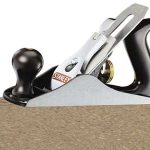If you own tools that are essential to your job or business, then tool insurance can be a good idea. It can protect you in the event of damaged, or stolen tools.
In order to claim on your insurance, you will need to prove that your claim is valid, and then you will usually need to pay an excess. Following this, if everything checks out, the insurance company will pay out the value of the tools that are missing. This will also be influenced by the total amount of cover you have.
A common problem in construction is tool theft. For any qualified tradesman, their tools are a vital asset to carrying out their daily tasks.

Whether you are a joiner, an electrician, a plumber, or any other trade, it is likely you have an expensive set of tools, that you have probably built up over several years.
Many power tools used in construction are not cheap. However, they are usually well worth the cost, as they allow you to do your work much faster and more efficiently. There will also be jobs where an expensive power tool, or an expensive bit of machinery is essential.
Having these types of tool stolen, could mean you are unable to complete jobs you are working on. As a result, you are not only losing all the money invested in your tools. But you are also making a further loss in earnings until you can replace them.
How do you insure your tools?
Tool insurance can usually be added to an existing policy. This could be a work vans insurance policy, or even your business insurance. There are also specialist companies who provide standalone tool insurance. All of these will have different rules and requirements and policies will also vary from one supplier to another.
In construction, insurance is often required for tools left in a van. However, there may be certain strict rules for a claim to be valid. For example, the following may be required:
- An alarm on your van
- The van may need to be stored off-road. This could mean behind a locked gate or even a locked garage.
- Tools may need to be stored securely inside a locked storage container inside your locked van.
- Some policies may not allow tools to be left in a van overnight.
- Etc.
For this reason, it is really important that you ask lots of questions, to ensure you are getting the cover you need.
It is often very wise to shop around, as different policies will have different rules. The two main things you should be concerned with are
- The circumstances you are covered in – For example, are tools insured overnight in your van? This is just an example, but you also need to consider all the situations where your tools may be stored or left unattended. you should also find out what type of damage you are covered for.
- What proof do you need to make a claim – This can be a sticking point, and many insurers will require receipts for your tools. Obviously, not everyone will have receipts, so this can cause problems. In other examples pictures may be sufficient.
When is tool insurance worth it?
Tool insurance is going to be worth it when you have a lot of expensive tools. If your tools are only worth a few hundred pounds, then it may not be worth it. The cost of insurance, coupled with the excess payment, could mean it doesn’t make sense.
In this case, unfortunately you have to just take the hit and replace these lower cost tools yourself. Tool insurance is worth it when you have a considerable value in your tools.
For example, a joiner having over £5000 worth of power tools stolen, would be a big problem. This is a large amount to pay out for new tools, and most people won’t have this lying around.
Paying something like 10% excess would still sting a little. However, it would certainly be preferable to the full amount.
When it comes to high value tools, having them insured will give some peace of mind. Basically, you know if they are stolen, you should be able to get your claim through, and get back to work relatively quickly.
Without the insurance, this could result in a much larger outlay for new tools. Plus the potential inability to carry on with the jobs you are currently working on.
personal anecdote of claiming on tool insurance
When I worked in construction as a qualified joiner, I have to admit, I didn’t always have tool insurance. However, I was once in a situation where I was able to claim back for several stolen power tools.
This was via an employer’s tool insurance, and it covered items stolen from a site lockup. Following this, I always had my own insurance, as I realise the value it provided.
This instance was very lucky. The company we were working for, had a large lockup where tools and materials were stored. This was a secure lockup, within a building site, that had a security guard. However, thieves managed to get in and cleaned out a large amount of power tools.
For me this included:
- 1 x DeWalt cordless drill
- 1 x Makita circular saw
- 1 x Paslode nail gun
This was pretty devastating for me at the time, and I honestly didn’t think I would get these back. However, the site manager told me and some other people, that we could claim through their business insurance.
A lot of lads on site had gear stolen, and I think the employer realised this would slow the job down. So this actually went through really quickly, and we all ended up with brand new power tools. Also, because this was through someone else’s insurance, there was no excess to pay.
Obviously this was very lucky, but it did teach me an important lesson. At the time, I didn’t have the £700-800 needed to replace my stolen tools, so this would have really sucked without the pay-out.
Following this incident, I did get my own tool insurance, which coincidently I never ended up using. However, I do still think it was a wise precaution.
Conclusion
Tool insurance can definitely be worthwhile, especially if you rely on expensive tools to do your job.
What you really need to do, is whey up the pros and cons. This will mainly look at the cost of a policy and the excess you will need to pay, versus having to buy all your tools outright if they are stolen.
You also need to be very thorough when choosing a policy. The terms should suit your own personal circumstances. You don’t want to find your not covered in a certain situation, where you really needed the cover.




